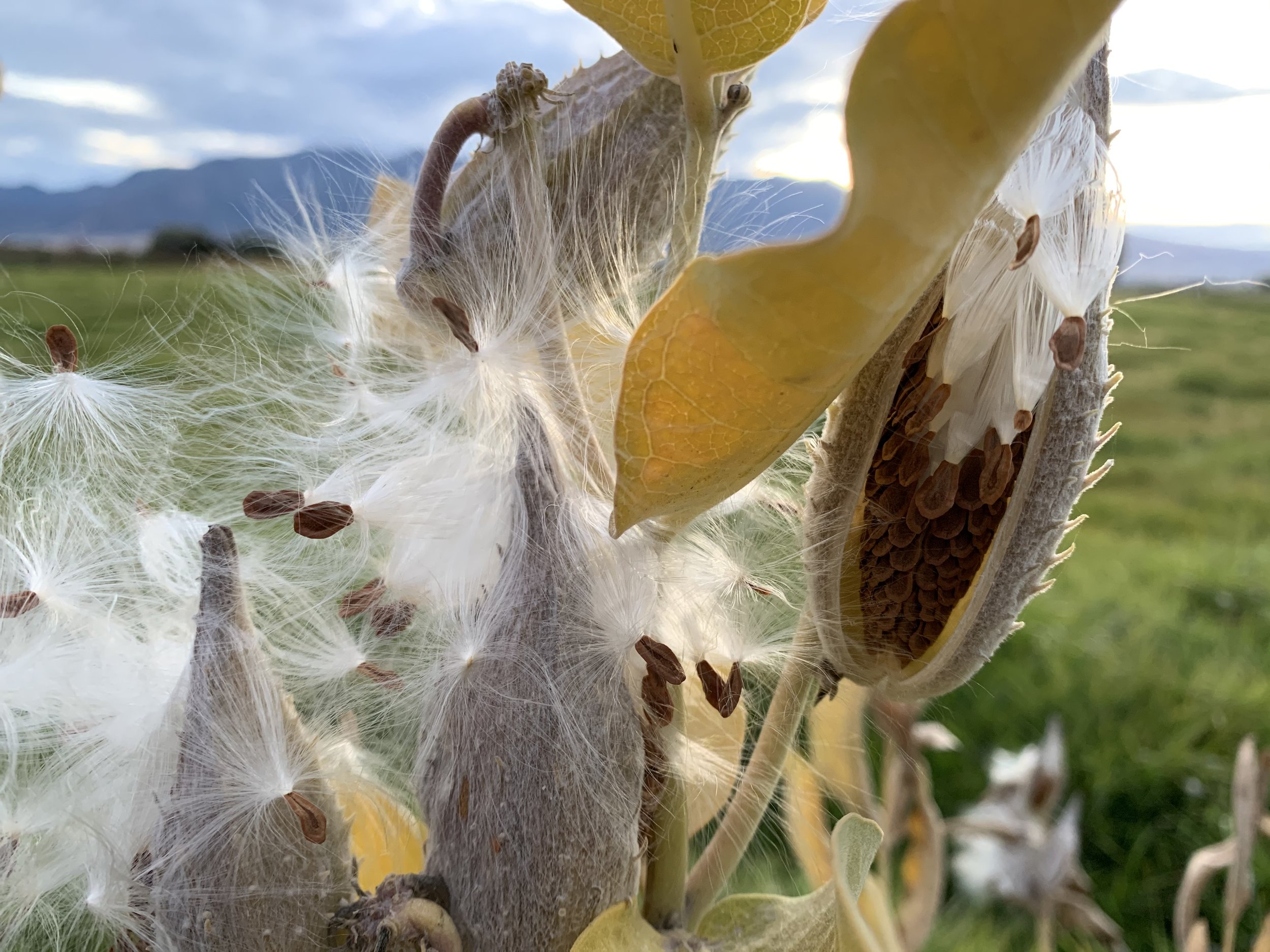Milkweed is the ONLY host plant used by monarch caterpillars in the contiguous United States. It is required at their multiple stopover locations along migration routes for the reproductive and larval stages of their lifecycle (egg laying and caterpillar rearing). Monarch butterflies will only lay eggs on milkweed and it is the only plant caterpillars will consume. However, butterflies will utilize a variety of other flowering plants, shrubs and trees for nectar sources, shelter and overwintering.
Many people view milkweed as ugly in landscapes; an eyesore in decorative flowerbeds; a nuisance to crops and agricultural lands. People have gone to great measures to eradicate milkweed from their land using chemicals, mowers, and other methods of removal. Sadly this has resulted in the destruction of monarch habitat across the West. While the reason for monarch population declines are largely undetermined, scientists can say with certainly that there are far fewer habitats available than historical data indicates.
In reality milkweed is an incredibly resilient native plant on which local pollinators, monarchs included, thrive. It is one of the most effective pollinator attractants in the Western US and is necesary for monarch survival. Several varieties make it suitable for almost any region (16 varieties are primarily preferred by monarchs, dependent on elevation and location). Most varieties are drought tolerant, low maintenance and have fragrant summer bloom. It can be planted in ways that enhance any landscape from designer beds to wild fields. By planting local native varieties, we can provide new habitats for the amazing creatures that help our planet grow.
Please consider the importance of milkweed on lands that you love and use your voice to advocate for its existence. Protect established stands. Plant some seeds. Spread the word. Milkweed matters.
Find out more about monarch Habitat Needs (USFS) and other ways you can help Save The Monarchs (USFWS) by participating in your region. Several states west of the Rockies provide regionally specific plant information and valuable resources for milkweed identification and distribution (e.g., Utah). Additionally states are asking for the help of citizen scientist to assist with Monarch Butterly Conservation, Thanksgiving Day Counts and more. Check out your State Websites for additional information.
